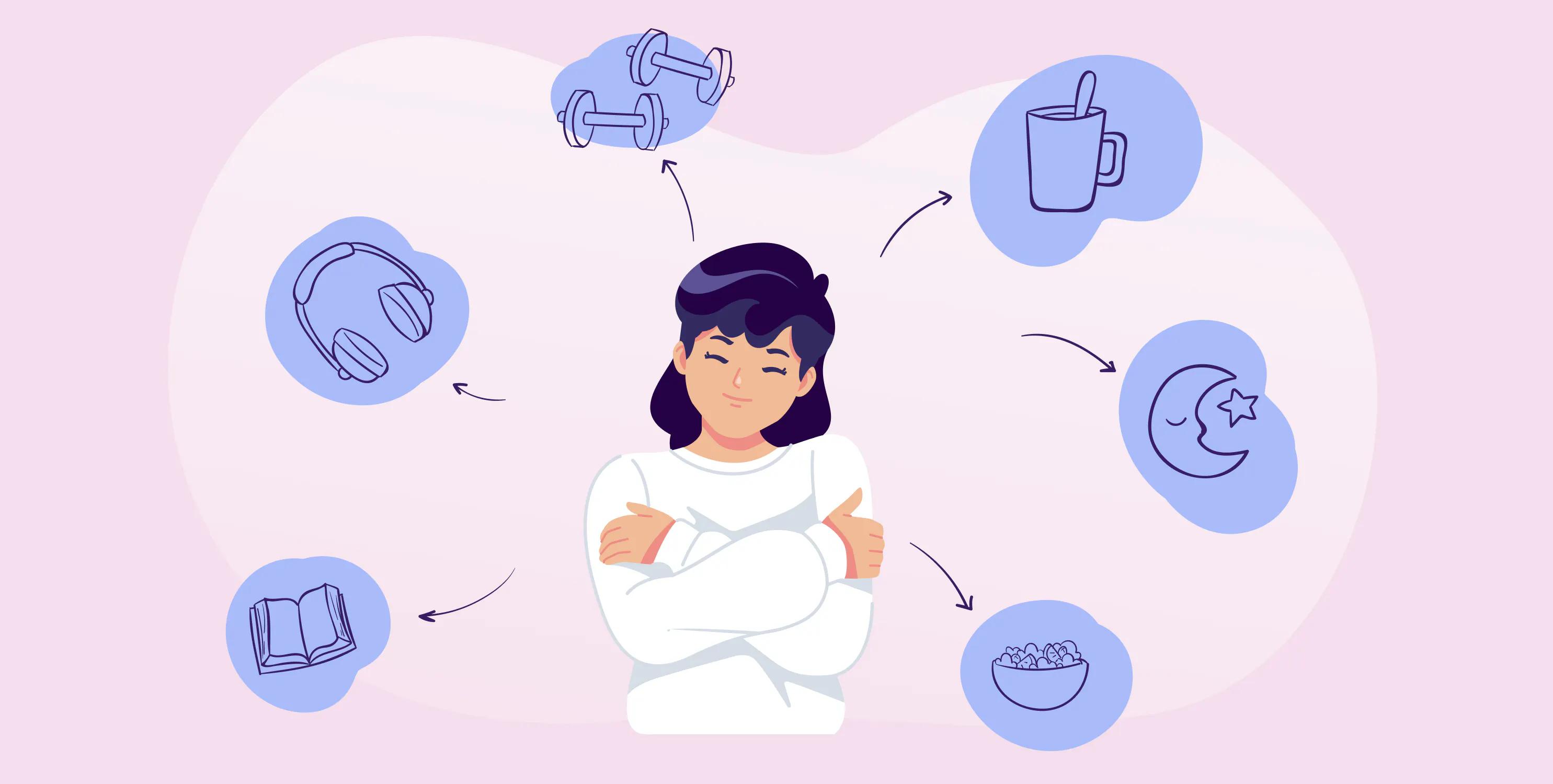
2 minute read
Wellbeing The Art of Self-Care
- Ishita Verma
We have all heard of the term ‘self-care’, but what does it actually mean?
Advertisement
[1]“Self-care is anything that leaves you feeling enriched or nourished,” “It’s adaptable — what self-care is for one person will look very different for someone else.” -Morgan Turner, a licensed independent clinical social worker. In essence, it is doing something that helps your body, mind and soul feel good. Unfortunately, self-care is seen as a luxury rather than a need and this should not be the case. Self-care is something that everyone needs daily, and not just those who feel stressed. We should try to incorporate elements of self-care into our busy routines in order to feel a greater sense of fulfilment
The beauty of it is that there is no one right way to practice self-care, it takes on a variety of forms depending on what you desire and need. For some, that can mean taking care of your physical health by going on a walk, eating nutritious foods, getting enough sleep or simply making sure you’re able to fit in a shower each day. For others, it can mean nurturing your mental health with daily meditation sessions, practicing a hobby you love or connecting with friends and family. And, in some cases, it can even mean setting healthy boundaries by giving yourself permission to turn down invitations to certain activities or to stop engaging in a negative relationship.
Activities such as; going on an online shopping spree you can’t afford or going out all the time at the expense of other things important to you, may make you feel free and happy in the moment, but they ultimately result in negative consequences and are not considered as self-care. In fact, these are known as ‘avoidance strategies’ that prevent you from having emotions for a certain period of time. Self-care, on the other hand, “makes you feel healthier, happier and more empowered as a consequence.” That’s not to say you must always stick to 100% good-foryou activities, as long as it's not something you’ll find excessive or unreasonable, there is absolutely no reason not to treat yourself!
[2]‘Burn out’ refers to state of physical and mental exhaustion. Often, we find ourselves working so hard both at school and at home that after a certain point, if we haven’t give our bodies and minds any opportunity to relax during the process, we may become demotivated and less eager to work, consequently leaving us feeling frustrated and stressed.
(Continued on next page)
If you feel overwhelmed and don’t know how to incorporate self-care into your daily routine, start by making simple changes. [3]You could change the way you approach certain tasks, small changes to our routine are beneficial as they create new neural pathways in the brain. This keeps it healthy. Small changes we could make to our diet could include trying to drink more water or eating at least one superfood twice a week. The benefits of meditation are indisputable, and regular practice doesn’t need to take hours out of our lives, even 10 minutes every morning is sufficient.
The bottom line is that we cannot neglect ourselves during the process of pursuing our dreams. In fact, self-care helps us reach these dreams with greater ease.
“Love yourself first, and everything else falls in line. You really have to love yourself to get anything done in this world.” Lucille
Ball
(References available upon emailing theglasscorridor@qegs.lincs.sch.uk)










